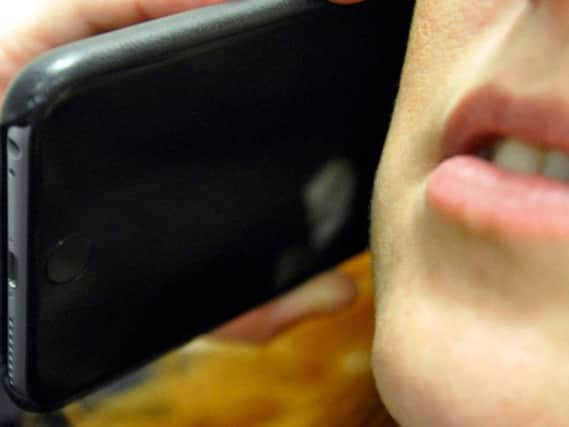Here's what to do if you need to call 999- but can't talk


The ‘Make yourself heard’ campaign launched earlier this week by the Independent Office for Police Conduct (IOPC) is intended to raise awareness of a national system called ‘silent solution’, in which callers who dial 999, from a mobile phone, but are too afraid to speak can press 55 to confirm they are in a genuine emergency.
Emergency calls in the UK are initially handled by a BT operator, who will ask a few questions in order to determine the most appropriate emergency service for the situation.
Advertisement
Hide AdAdvertisement
Hide AdIf there is no response to these questions, and in order to filter out hoax or accidental calls, the operator will ask the caller to dial 55 if they are in a genuine emergency. The call will then be transferred to police.
Detective Chief Inspector Steve Shaw, Derbyshire Constabulary lead for Stalking and Domestic Abuse, said: “There are a number of different situations where a caller may be in a genuine emergency but is too afraid to speak for fear of putting themselves or another person in danger.
“In these cases, the ‘silent solution’ system is vitally important as it could potentially save a life.
“Anyone who dials 55 on the BT operator’s instruction, within Derbyshire, will be put through to the force control room where one of our call handlers will attempt to establish the location of the caller and the nature of the emergency.
Advertisement
Hide AdAdvertisement
Hide Ad“It is really important to note that the police will not automatically have the location details of a caller who has pressed 55, but they may ask a series of yes or no questions to establish this and ask the caller to tap their keypad or whisper if they are unable to speak normally.
“They can also follow up information provided by the mobile operator to get an approximate location.”
The system, which has been in place for a number of years, is not in operation for calls from landlines because it is less likely that accidental 999 calls will be made from landline phones. However, if a caller doesn’t respond to questions or only background noise can be heard from a landline call it will be connected to a police call handler.
It comes after figures revealed there was one stalking and harassment case reported every other day in Chesterfield last year.
Advertisement
Hide AdAdvertisement
Hide AdOffice for National Statistics data shows that in Chesterfield, 189 cases of stalking, harassment or malicious communications were reported between October 2017 and September 2018.
Of the three crimes included in the figures stalking is the most serious, and can include following someone, repeatedly going uninvited to their home and monitoring their use of phones and computers.
Over the last five years, the number of recorded stalking and harassment cases has more than tripled in Chesterfield.
The Home Office says police recording has improved and victims are feeling more empowered to come forward.